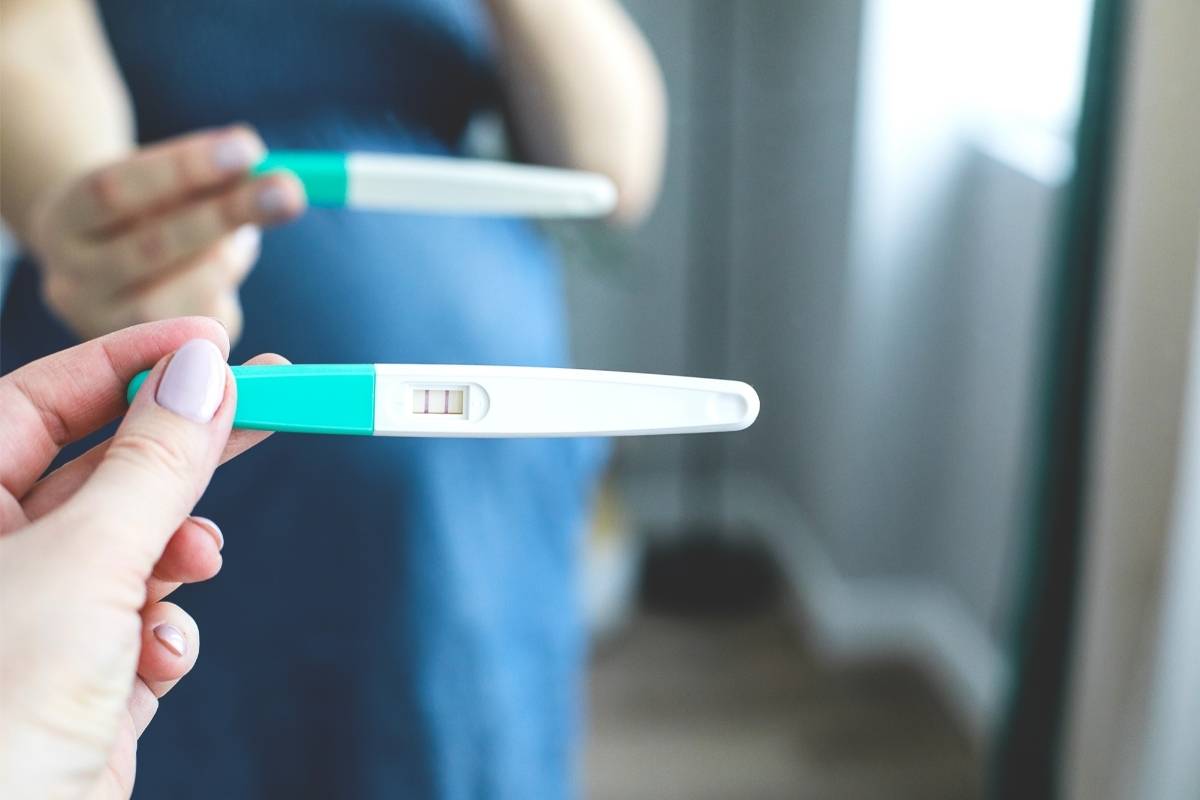
No doubt, conception is a very serious and complicated subject for most people. For a couple to achieve success, several different factors play vital roles. For instance, the health of both couples is one of the many things that determine whether or not conception is possible.
Furthermore, sexual intercourse between couples is another factor that makes conception more likely to happen. Yes, the timing, as well as the positioning during sex is important. For couples looking to make a baby, the best time of the month to do that is during the fertility window, which usually starts about 5 days before ovulation and 24 hours after ovulation.
When Is The Best Time To Conceive On A Day?
First, you need to understand that no specific time of the day is associated with the chances of getting pregnant. However, according to a study, trying sex before 7:30 am could increase a woman’s chances of getting pregnant. Another study carried out at the University of Modena says the best time is during the late afternoon hours.
What is the best time of the month to conceive? Is it best to conceive in the morning or night? What are the dos and don’ts when trying to conceive? These and more are the burning questions that you’ll find answers to as you read through the rest of this article.

Here’s What You Need To Know About Conception
Most people see conception as a very complicated subject. In case you’re one of them, here’s what you need to know below.
- For conception to occur, a sperm cell from a fertile man needs to first flow through the vagina of a woman into the uterus.
- Inside the uterus, the sperm cell will join with the woman’s egg cell and then move to the fallopian tube, where fertilization takes place.
- After the egg becomes fertilized, it continues to move down the fallopian tube. At this point, the egg begins to replicate into two cells, four cells.
- After a week, the fertilized egg will become a growing cluster of about 100 cells. These cells are called “blastocyst.”
- The blastocyst, through implantation, will further attach itself to the endometrium, known as the linen of the uterus.
- With the help of hormones estrogen and progesterone, the linen will become thick and supply the blastocyst with rich nutrients, which aid the development of a baby inside the womb.
What is the best time of the month to conceive?
A couple of factors influence a woman’s chances of conception. Some of them include age, the frequency of sexual intercourse, adequate nutrient, the couple’s health, and timing.
Speaking of timing; you need to understand that the best time of the month to conceive is during a woman’s fertility window. In case you don’t know, your fertility window usually starts about 5 days before ovulation. This window stretches to 24 hours after ovulation.
You already know exactly how conception occurs. Here’s additional information that you need to know; when you ovulate, a ripe egg is released by your ovary into the fallopian tube.
Interestingly, the ripe egg released by the ovary only has up to 24 hours to meet with a sperm cell. Unlike the egg, sperm can always stick around the fallopian tube for several days. This explains why a woman can conceive about 5 days before ovulation.
Instead of having sexual intercourse after ovulation, having sex 5 days or less before ovulation could make a woman conceive. Yes, the sperm cell will have to stick around in the fallopian tube and wait for a ripe egg to be released during ovulation. That said, if you have to wait for ovulation to happen before you conceive, you need to understand that you only have about 12 to 24 hours to have sex.
The bottom line is that the best time for a woman to conceive is during the fertility window, which stretches from 5 days before ovulation to about 24 hours after ovulation. Before ovulation, a sperm cell will wait inside the fallopian tube for fertilization to occur with the released egg. After ovulation, conception will occur when a sperm cell swims and meets with the released egg for fertilization to take place.
Is It Best To Conceive In The Morning Or Night?
You need to understand that there’s no specific set time of the day that increases the chances of conception. No doubt, a couple of studies have been performed regarding this topic in the past. However, there hasn’t yet been a specific time of the day that makes the chances of conception high.
Before 7:30 am in March, April, and May?
According to a study, carried out at the University Hospital Zurich, having sexual intercourse before 7:30 in the morning, especially throughout March, April, and May could increase a woman’s chances of conceiving. The researcher found this after performing a series of analyses on sperm samples of 7,000 men. These people were between the ages of 25 & 40 and undergoing fertility treatment.
During late afternoon hours?
According to another study, carried out by a team of researchers at the University of Modena in Italy, the best time for a couple to conceive is during the late afternoon hours. The study revealed that men often have an increase in sperm quantity and mobility at this period (late in the afternoon).
Other Times Of The Day
A man’s testosterone is said to be at its boasting levels between 6 am and 9 am. It’s usually at its peak around 8 a.m, according to Randi Hutter Epstein of the NY Times. As such, you can also try having sex during this period as the chances of conceiving are pretty high. You can also consider trying sex when the libido is at its full strength – this is really between 10 pm and 1 am.
Focus more on your fertility window
Many studies have proven that a man’s sperm count is usually higher in the morning. While this is correct, you need to understand that the increase in sperm count between morning and night has little or no effect on conception. Here’s why:
According to research, a healthy man can always release between 40 million and 1.2 billion sperm cells in a single ejaculation. The difference between ejaculating in the morning and at night is just minimal. For instance, you may release up to 88 million in the morning and about 85 million in the evening.
No doubt, a difference of 3 million sperm counts looks big enough. But you need to understand that the 3 million sperm cells do not count since it only takes a single sperm cell to fertilize a woman’s ripe egg.
Bottom line: there’s no specific time of the day that’s sure to increase your chances of conceiving. However, some studies reveal that having sex before 7:30 in the morning or during the late afternoon hours could increase your chances. Apart from that, having sex during your fertility window, especially when the libido is at its full strength or when your man’s testosterone is at its boosting levels, could also increase your chances of conceiving.
What Are The Dos And Don’ts When Trying To Conceive?
If you’re finding it difficult to conceive after a lot of tries, it could be that you’re doing exactly what you’re not supposed to do. You can check below to see some of the dos and don’ts when conceiving.
Dos
- You need adequate nutrients
One of the things you need to do when trying to conceive is to take a sufficient amount of nutrients and prenatal vitamins and folic acid. This will keep you safe and protected against various birth defects.
- Understand your fertility cycle
Another thing you need is to keep track and understand your fertility cycle. With that, you can be sure that you’re having sexual intercourse with your man at the right time.
- Avoid stressing yourself
Stressing yourself is one of the factors that could affect ovulation and conception. As such, for you to achieve better results, you need to stay away from stress as much as possible when trying to conceive.
Don’ts
- Don’t forget to visit your doctor
During the process of trying to conceive, one thing I won’t advise you to do is to stay away from visiting your doctor. By seeing your doctor early enough, you can always get the necessary information, which could help increase your chances of conceiving.
- Don’t use liquid-based lubricants
Another thing you need to stay away from when trying to conceive is the use of liquid-based lubricants. With these products, the motility of sperm could be reduced partially or fully.
- Avoid over-exercising
No doubt, exercise is very great for you when trying to conceive. However, when you over-exercise your body, it could end up stressing you and affecting the evaluation and conception process.

